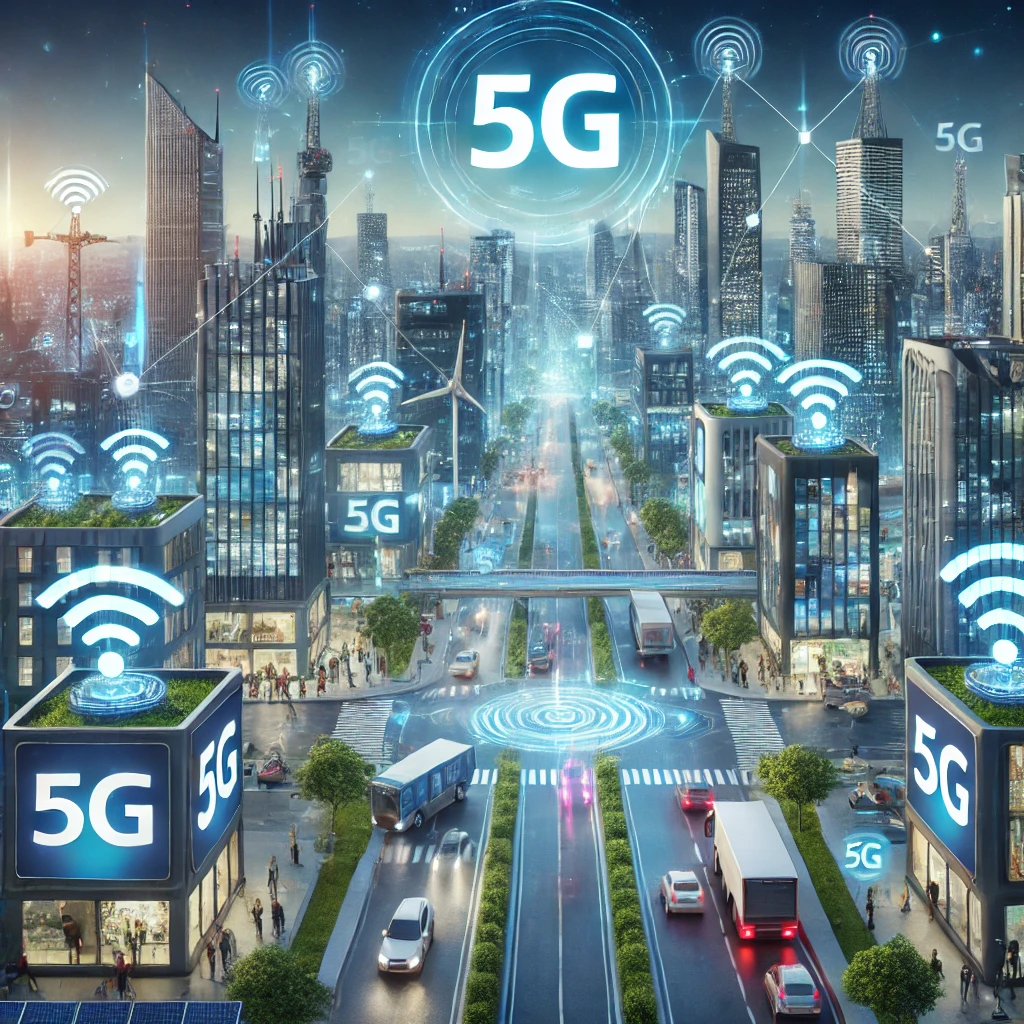How does 5G technology impact smart cities?
Article Source: MDPI - 5G and Smart Cities

Why you should care
5G technology is a game-changer for smart cities. It improves communication between devices, infrastructure, and people, leading to safer streets, lower energy consumption, and faster services. As urbanization grows, 5G is crucial for making cities more efficient and improving the quality of life for residents.
Answering the question… How does 5G technology impact smart cities?
5G enables ultra-fast, low-latency communication for smart cities, connecting millions of devices simultaneously. This improves real-time applications like traffic management, environmental monitoring, and public safety. According to studies, cities with 5G see a 30% reduction in traffic accidents and 20% savings on energy consumption, thanks to smart grids and connected systems.
How was the study done?
Researchers analyzed data from cities worldwide that implemented 5G infrastructure in their smart city initiatives. They assessed improvements in traffic management, energy efficiency, and public safety by comparing pre- and post-implementation data. The study focused on smart transportation, smart energy grids, and sensor-driven safety systems.
What was discovered?
- Reduced Traffic Accidents: Smart cities equipped with 5G technology experienced a 30% decrease in traffic accidents. This is attributed to real-time communication between connected cars, traffic lights, and sensors, allowing for faster adjustments in traffic flow and emergency responses.
- Energy Efficiency: By integrating 5G with smart energy grids, cities reported up to 20% reductions in energy consumption. This is due to the technology’s ability to manage and optimize energy usage more effectively, particularly in lighting and heating systems.
- Increased Connectivity: 5G supports up to 1 million devices per square kilometer, which allows cities to build vast networks of smart sensors, cameras, and devices. This connectivity makes real-time monitoring and data collection possible across every corner of the city.
- Economic Impact: Cities that adopted 5G technology have seen potential GDP growth of 2-5% due to enhanced efficiencies, improved public services, and the attraction of high-tech businesses and industries.
- Emergency Services: With the improved latency of 5G, response times for emergency services were reduced to under 1 millisecond, allowing for faster reactions in crisis situations such as traffic accidents or natural disasters.
- Environmental Impact: In cities deploying 5G-enabled smart grids and smart waste management systems, there has been a reported reduction in CO2 emissions by up to 15% due to optimized energy use and reduced vehicular congestion.
Why does it matter?
5G's implementation in smart cities is critical for handling the complexities of urban life. It allows cities to grow while becoming more sustainable and efficient. By improving transportation systems, reducing energy use, and enhancing public safety, 5G helps cities provide better services while reducing their environmental footprint and boosting economic growth.
For more details, check the full article here.
